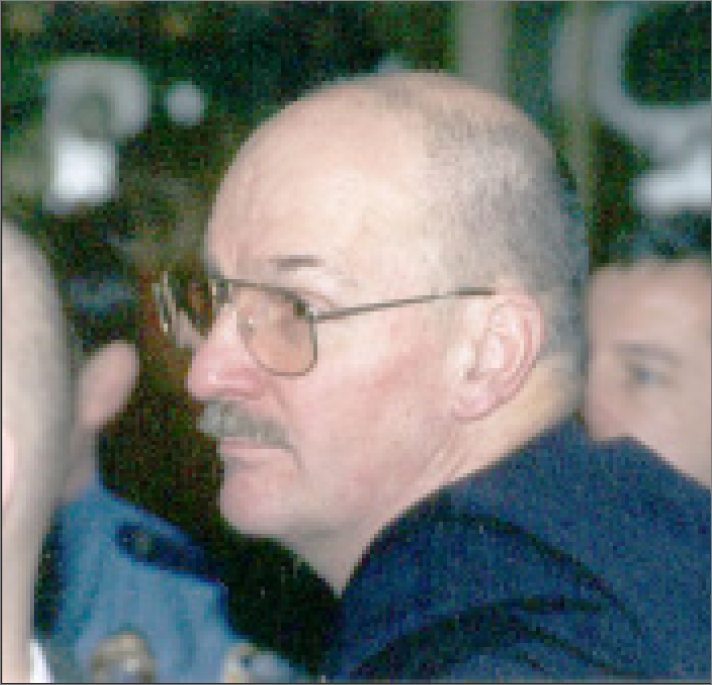The drug questions weren’t the only issues at stake. So, too, were Weidner’s seemingly endless questions about Demmert’s immunity and, ultimately, his use of Fifth Amendment protections [1]. Mary Anne Henry reminded the judge that he had ruled on that issue as well, essentially making questions about Demmert’s immunity claims “out of bounds.”
When Weidner responded, he recited the litany that had become central to the defense argument. He mentioned valium. He mentioned intimidation. He mentioned inaccurate statements before the grand jury. He mentioned the Fifth Amendment. He mentioned immunity.
“There has to come a time,” Weidner noted, “when you have to say that you simply can’t let a witness get away with this.”

Judge Schulz turned away Weidner’s arguments. He upheld his previous ruling on drug testimony. “If you don’t like this,” he told Weidner, then appeal it to the State Court of Appeals. “The address is 333 K Street.”
The prosecution wanted stronger assurances than that, particularly on questions about Demmert’s use of the Fifth Amendment. Their case, in part, depended on those protections. They held a closed door session the next morning.
When Judge Schulz issued his ruling, he spent close to two hours explaining it. In the end, the defense had one less weapon in its arsenal. They could no longer question Larry Demmert about his use of the Fifth Amendment.
“What was going through Mr. Demmert’s mind when he took the Fifth or the inferences he drew from it have been discussed enough and it’s gonna stop,” Schulz told the lawyers. “It is not fair to get testimony on the pursuit of a Constitutional privilege and then use the testimony against the witness in a trial. The Fifth Amendment belongs to all of us, not just those of us who are accused of crimes.” [emphasis added] [2]
Schulz ruled that Peel’s attorneys could continue to question Demmert about valium, immunity and allegations that he’d transported a gun across state lines. But he was tired of hearing the same questions over and over. Questions that the defense had already asked — more than once — were beyond the pale. Weidner now risked being held in contempt if he crossed the line.
But Schulz wasn’t confident that the threat of contempt would stop Phillip Weidner. After all, not much else had. As a precaution, he asked a State Trooper to come to the courtroom. If Weidner disobeyed his orders this time, Schulz was determined to send him to jail. Because it was Friday, he knew it would be until Monday before Weidner could get a judge to let him out.

The trooper who showed up was Sergeant John Glass. He came in full dress uniform, ready to take Weidner away. No love lost between them. On seeing Glass, however, Weidner immediately asked to approach the bench. “There’s a state trooper back there in his uniform,” Weidner protested.
“Yeah, I know,” Schulz said. “I called him.”
“Well, I feel intimidated,” Weidner said.
“Good,” Schulz shot back. “That’s exactly how I want you to feel. Now get back to work.”
Weidner was on his best behavior for the rest of the day. Schulz sensed that Sergeant Glass was more than a little irritated. He surmised that the trooper was looking forward to hauling Weidner off to jail. Phillip Weidner had disappointed him.
[1] The applicable portion of the Fifth Amendment for Larry Demmert was: “No person shall be … compelled in any criminal case to be a witness against himself, nor be deprived of life, liberty, or property, without due process of law…” In the instant case, Larry Demmert had corrected some of his statements between the time of the grand jury and the trial. Without Fifth Amendment and immunity protections, he faced perjury charges for testifying truthfully at trial.
[2] No matter the breadth of Fifth Amendment protections, many an attorney has tried to make their application a sign of guilt. How we feel about that depends on how we feel about the person claiming them.
Excerpts from the unpublished original manuscript, “Sailor Take Warning,” by Leland E. Hale. That manuscript, started in 1992 and based on court records from the Alaska State Archive, served as the basis for “What Happened in Craig.”
Copyright Leland E. Hale (2020). All rights reserved.

Order “What Happened In Craig,” HERE and HERE. True crime from Epicenter Press.